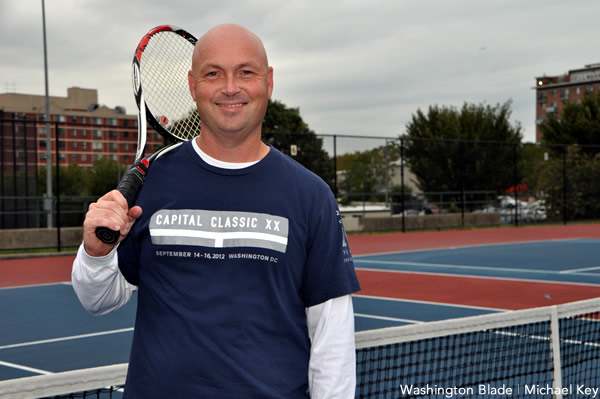Arts & Entertainment
Queery: Walker Chaffin
The tennis coach and Team D.C. honoree answers 20 gay questions
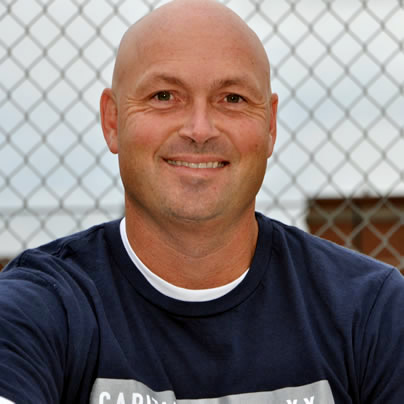
Walker Chaffin isn’t quite sure how he got into tennis as a kid. Nobody in his family played but somewhere along the way, he picked it up and it’s become a big part of his life.
As a member of the Capital Tennis Association — a gay D.C.-area league of about 300 players — for about 22 years, he just finished organizing his fifth charity tournament, the “Capital Classic,” for the group last month. This year’s recipients are the Washington AIDS Partnership and the Team D.C. scholarships. In past years, proceeds have gone to Food & Friends, Whitman-Walker, the Mautner Project and others. Over the years, Chaffin says the tournaments have raised about $100,000 for these groups.
For his efforts, he’s being honored Saturday night at the Team D.C. Champion Awards at the HRC building (teamdc.org).
“Well, you know, it’s a surprise and quite an honor,” Chaffin says. “My first thought was, ‘Who nominated me?’ but they’re very secretive about that. I’m happy we’ve been able to raise so much money. That’s why I wanted to do it, so it’s just a very nice surprise.”
The 46-year-old Alexandria, Va., native works as a law librarian by day but is active in the Association and also teaches tennis on the side. He’s been in the area his entire life except for two years of college in Minneapolis.
He and partner Brian Peteritas met last year at the Capital Classic.
Chaffin lives in Columbia Heights and enjoys, besides tennis of course, movies, TV and hanging out with friends in his free time.
How long have you been out and who was the hardest person to tell?
I have been out since 1989. I am extremely lucky because my mother made it clear early on that I was loved no matter what so coming out was not difficult for me as it was for others. Thanks Mom!
Who’s your LGBT hero?
Martina Navratilova — she is a great role model and one of the greatest players of all time. She was brave enough to come out well before others were doing it.
What’s Washington’s best nightspot, past or present?
Present – Nellie’s. Past – Tracks. Where else could you dance and/or play volleyball at 2 in the morning?
Describe your dream wedding.
Saying “I do” when it’s legal for all to marry.
What non-LGBT issue are you most passionate about?
The environment
What historical outcome would you change?
Martin Luther King’s assassination and 9-11.
What’s been the most memorable pop culture moment of your lifetime?
I would say seeing Madonna in concert for the first time. I waited in line overnight in 20 below temperatures in Minnesota to get those tickets and it was so worth it.
On what do you insist?
Respect, a great sense of humor and two DVRs.
What was your last Facebook post or Tweet?
I don’t post very often. My last post was “Paris was amazing, on my way to Barcelona” back in May.
If your life were a book, what would the title be?
“Game Set Match”
If science discovered a way to change sexual orientation, what would you do?
Nothing for myself but it would be fun to give it to Rick Santorum and the owner of Chick-Fil-A.
What do you believe in beyond the physical world?
Those we have loved and lost are still with us.
What’s your advice for LGBT movement leaders?
I don’t think I’m qualified to give them advice. I would, however, like to thank them for all their hard work.
What would you walk across hot coals for?
The people I love, a winning lottery ticket or a chance to hit with Roger Federer.
What LGBT stereotype annoys you most?
That we’re not interested in or good at sports.
What’s your favorite LGBT movie?
“Big Eden,” “A Single Man” and “Brokeback Mountain.”
What’s the most overrated social custom?
Political correctness
What trophy or prize do you most covet?
I can’t say I’d mind winning an Oscar or the U.S. Open.
What do you wish you’d known at 18?
To buy up all of the Microsoft stock.
Why Washington?
I was born here and have always loved it. I’ve almost relocated a few times but the life I have here and the friends I’ve made make it impossible to leave.
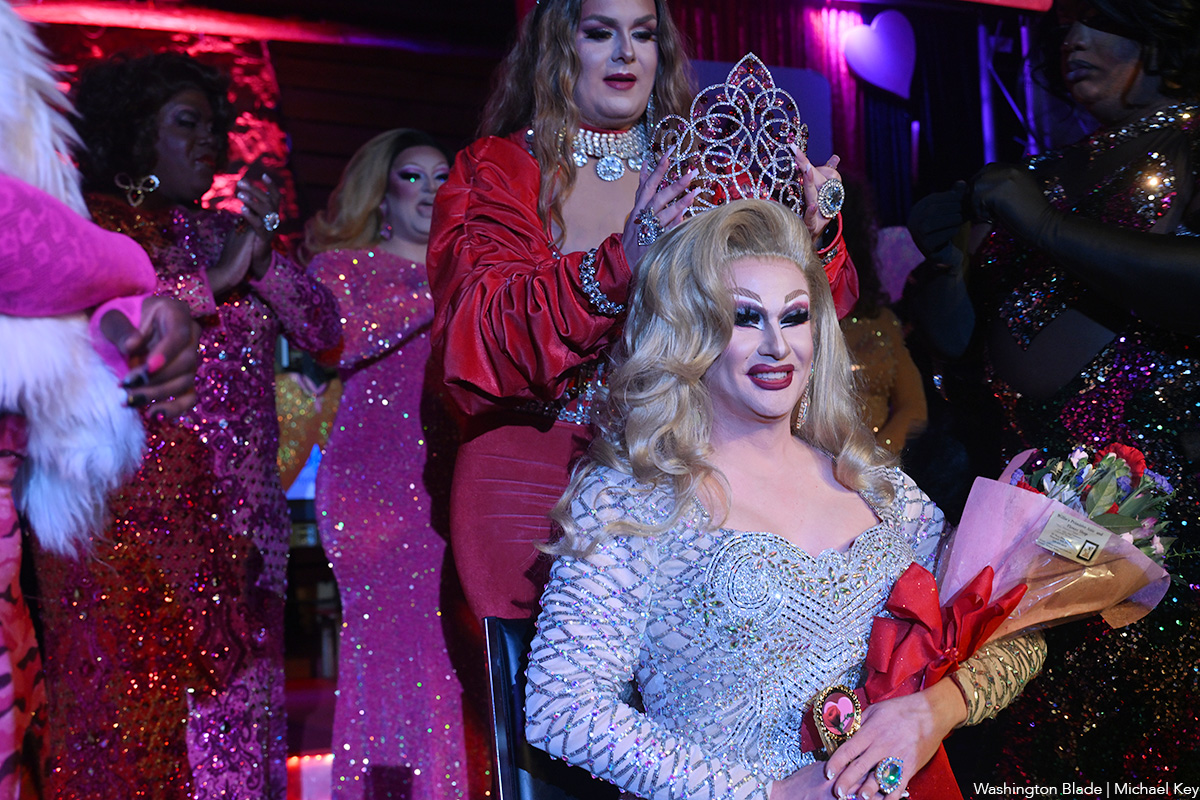
The 44th annual Queen of Hearts pageant was held at The Lodge in Boonsboro, Md. on Friday, Feb. 20. Six contestants vied for the title and Bev was crowned the winner.
(Washington Blade photos by Michael Key)
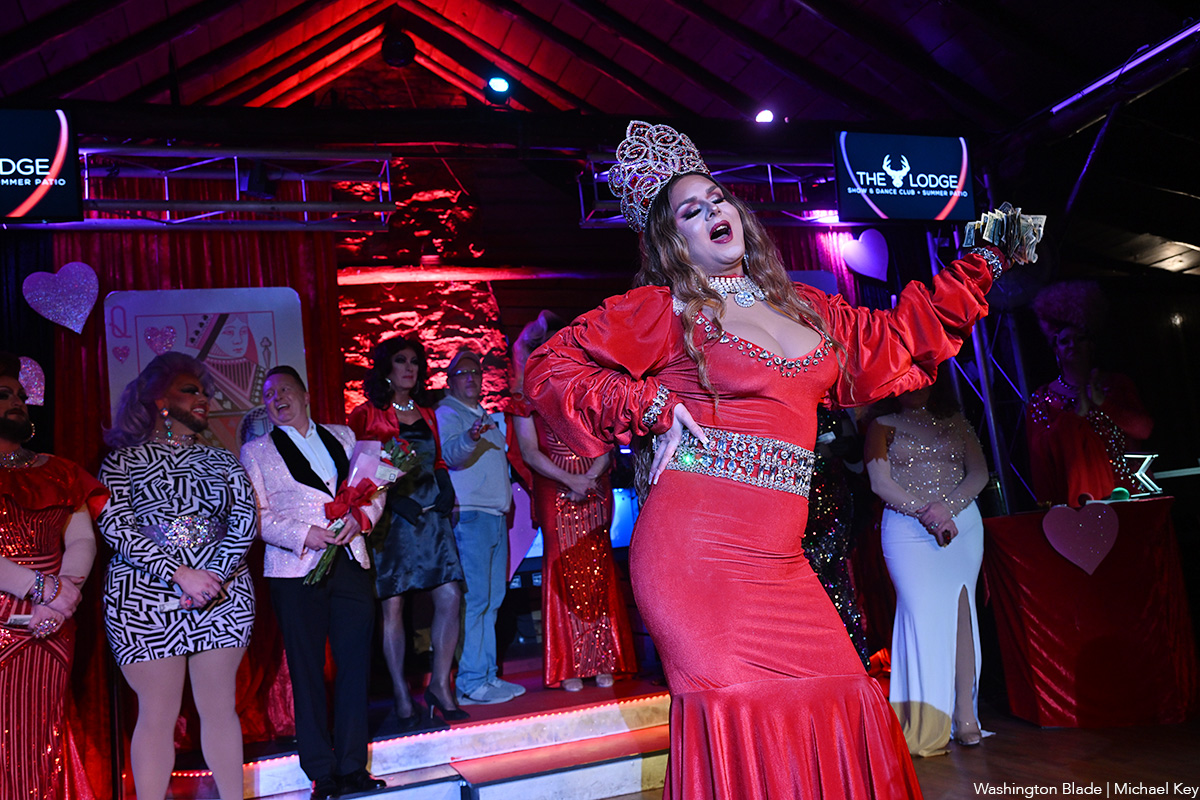
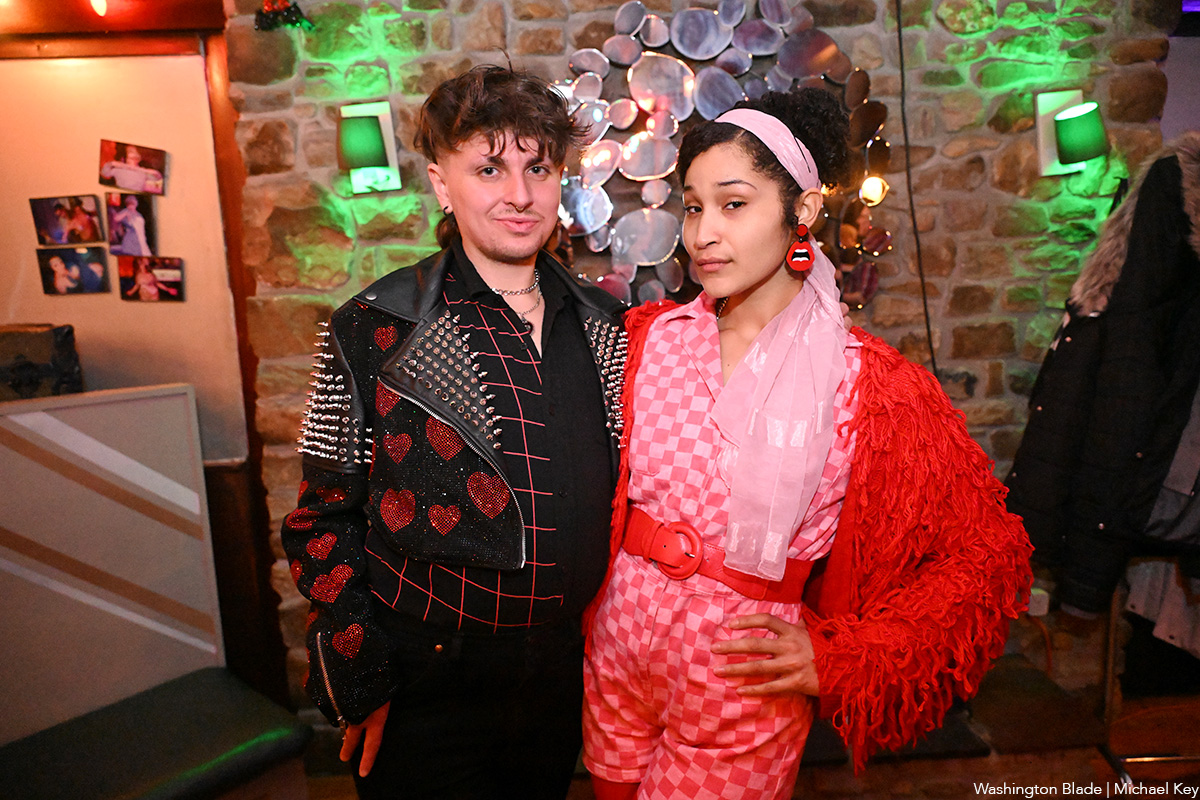
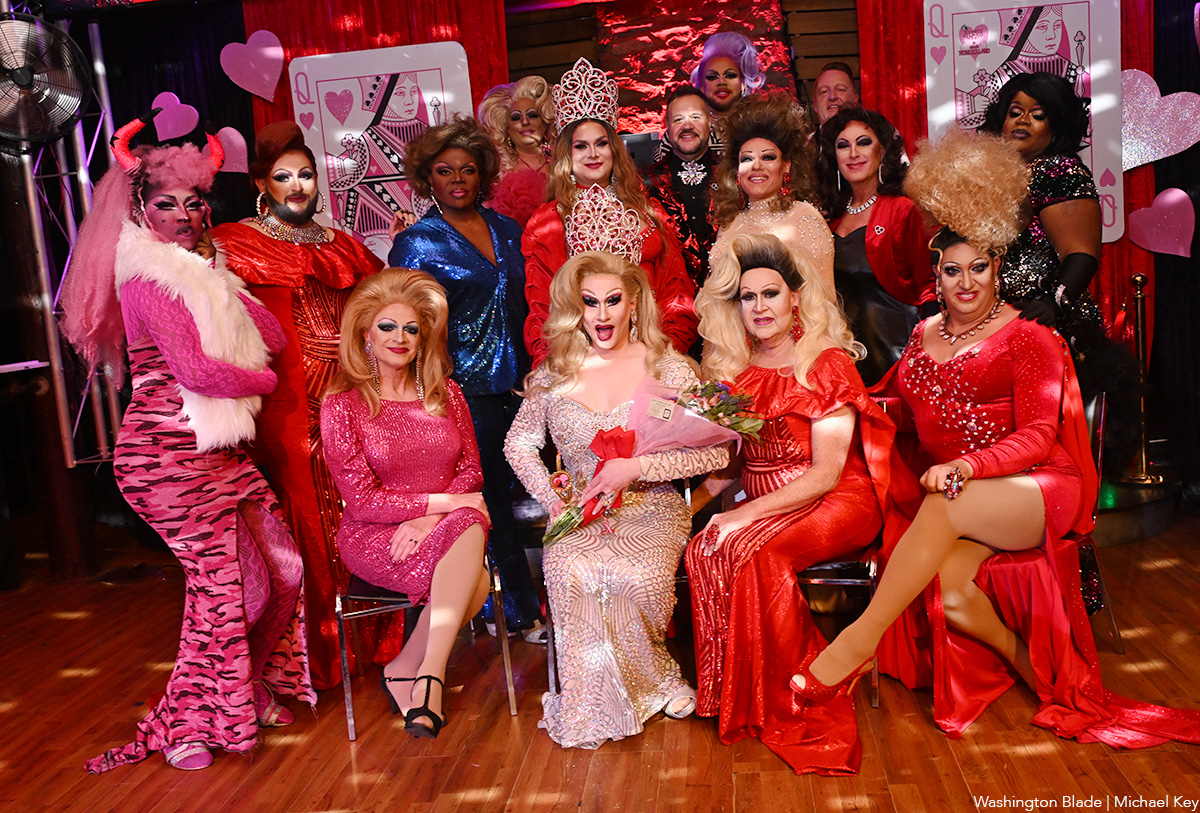
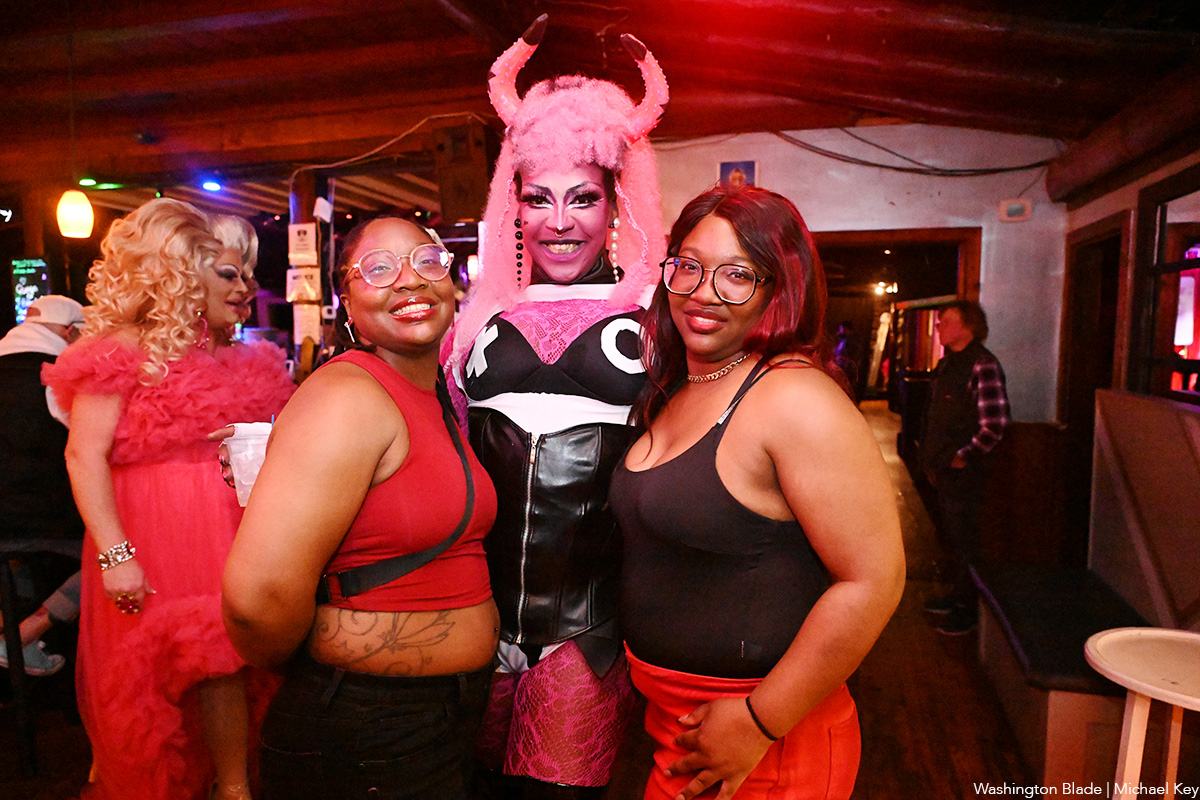
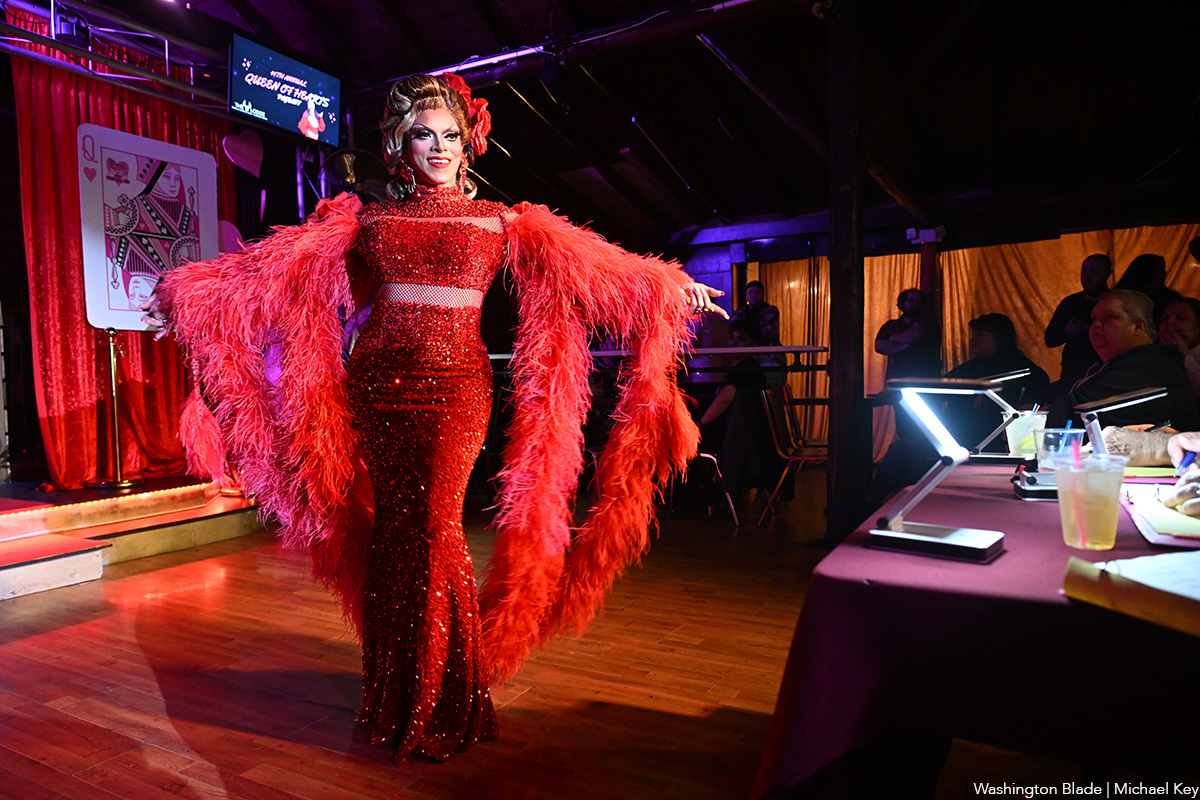
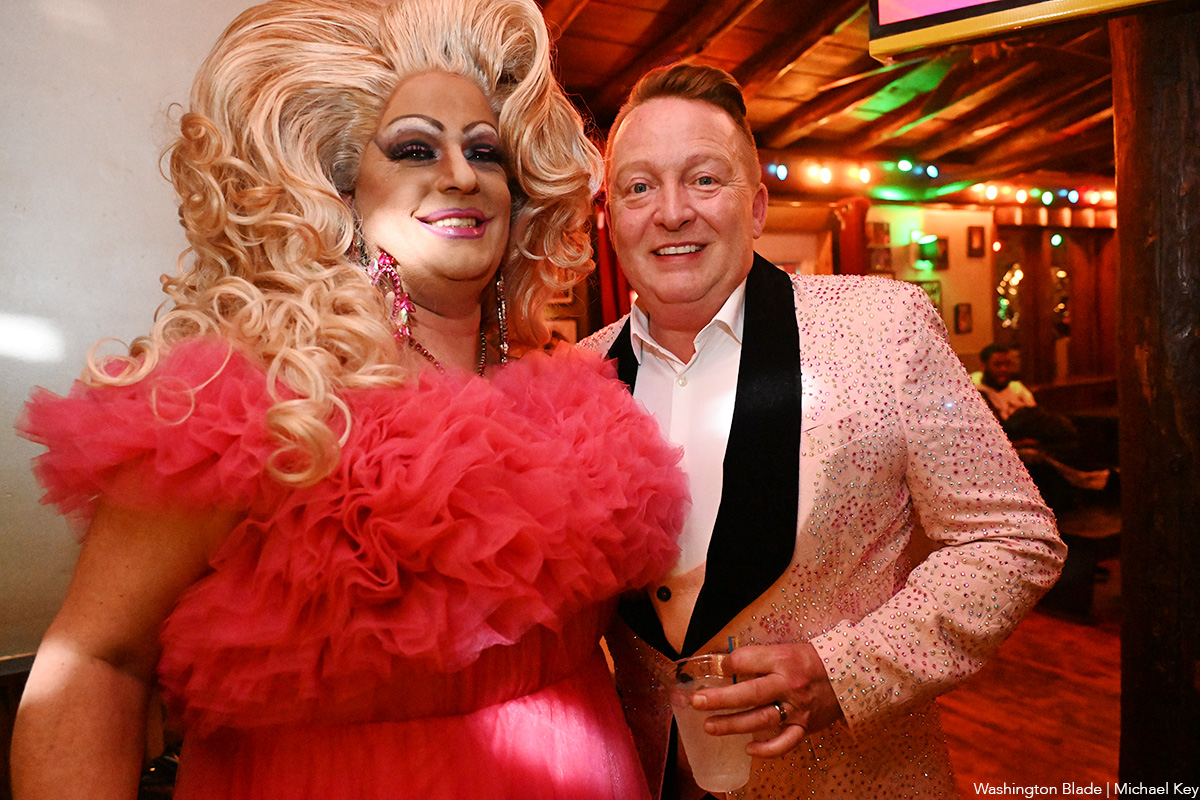
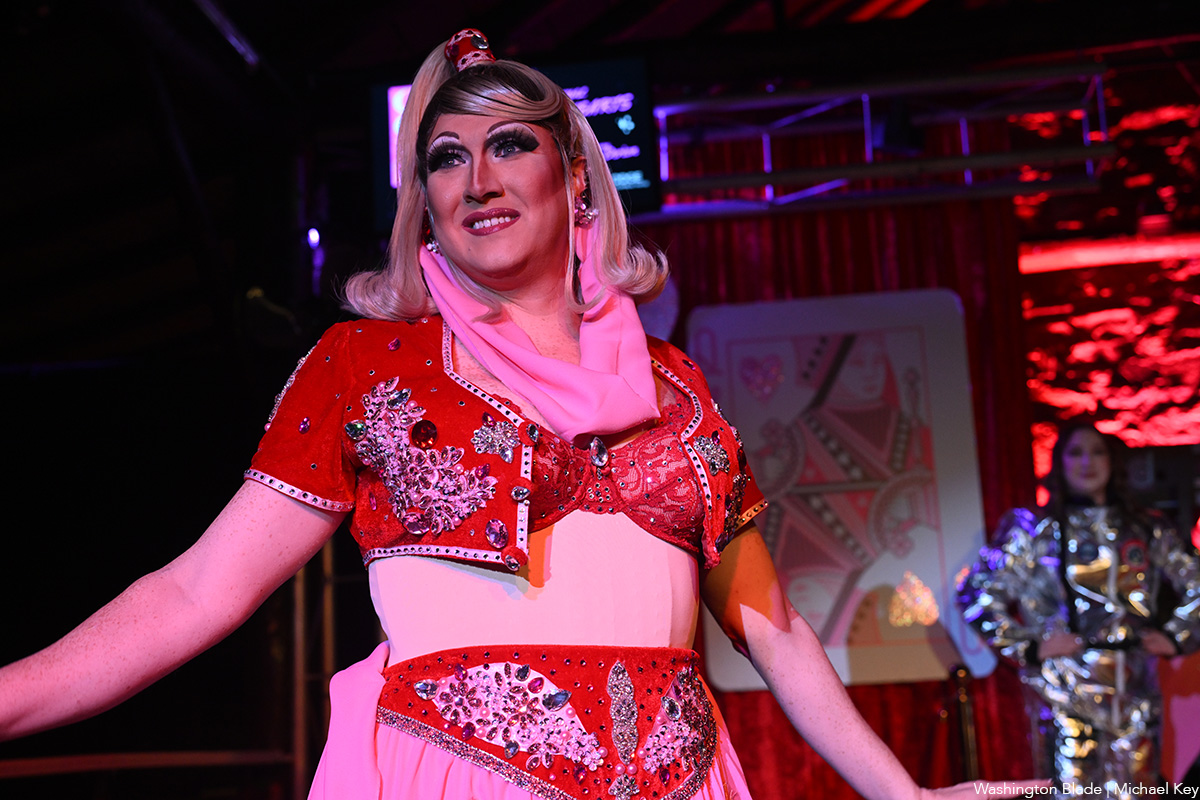
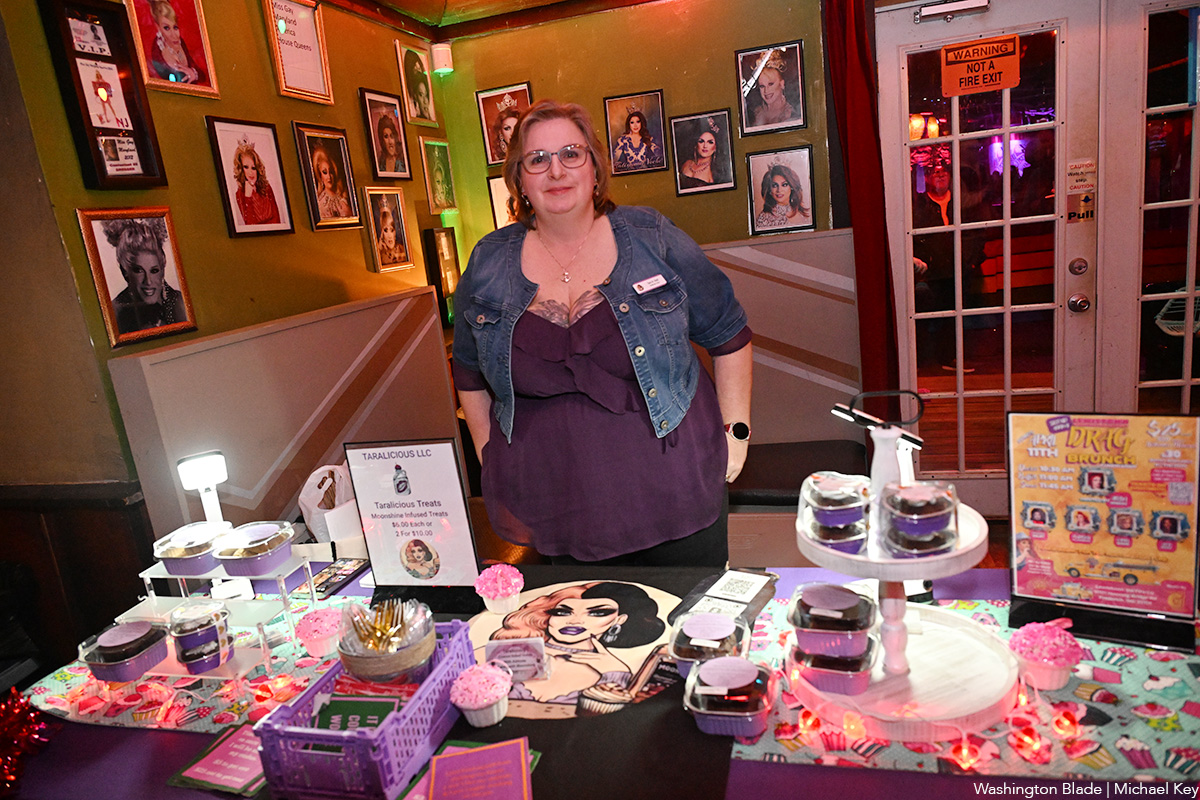
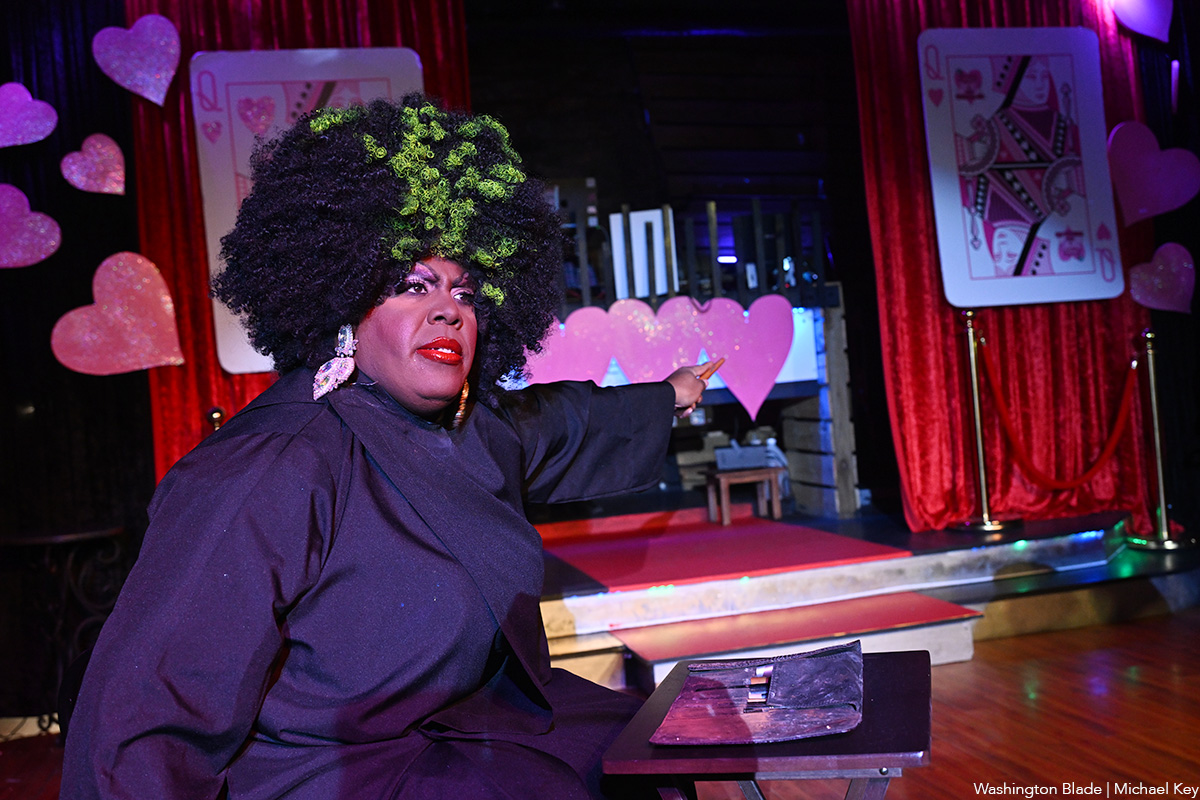
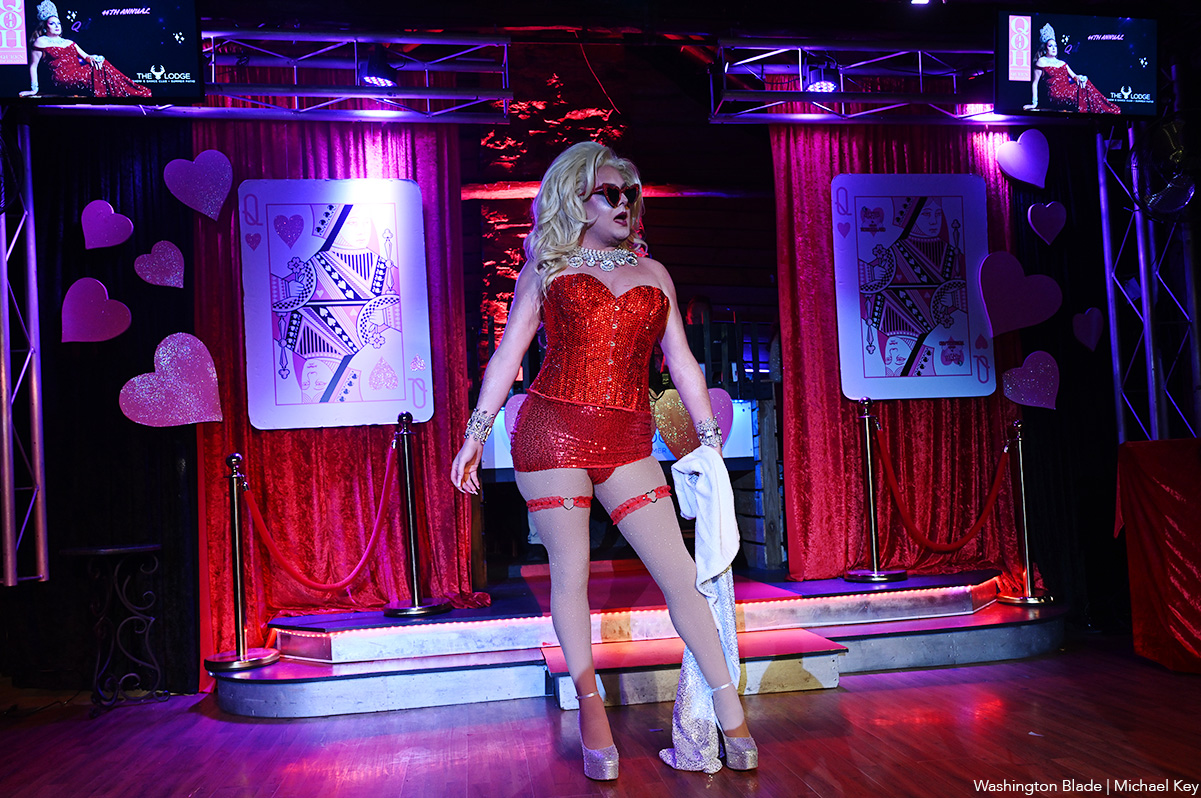
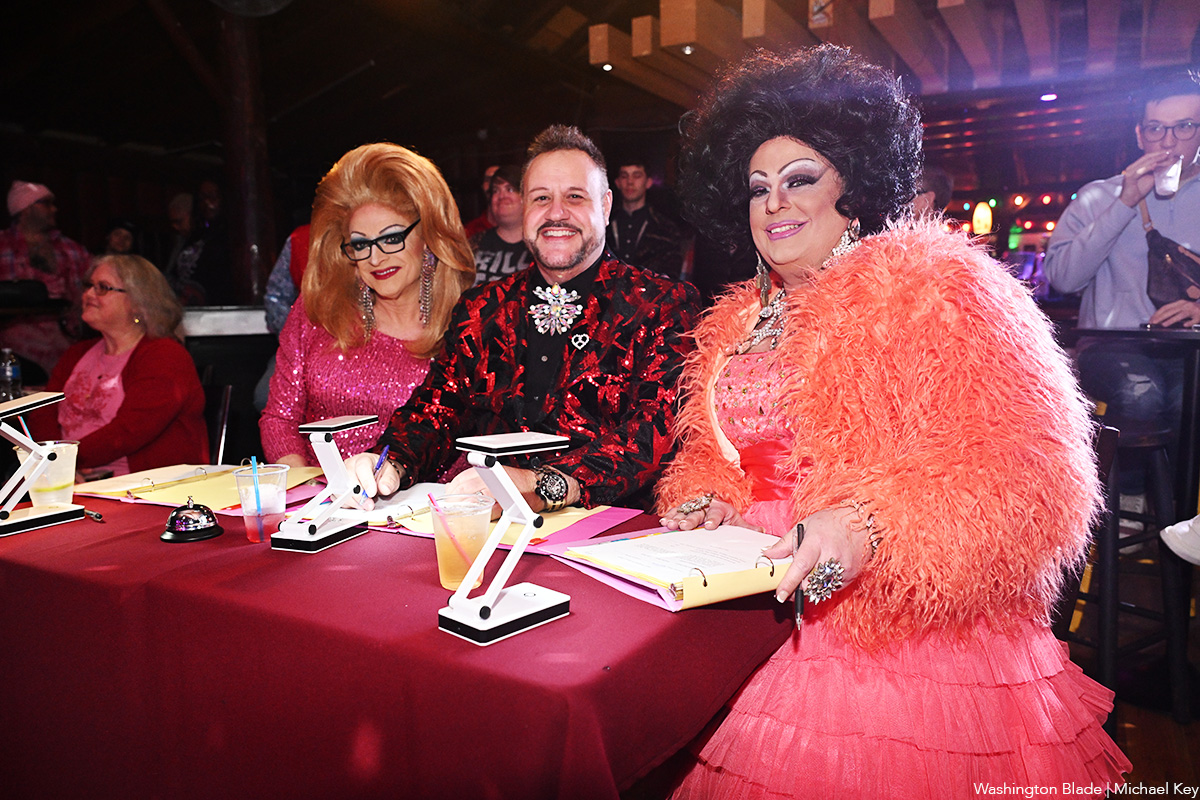
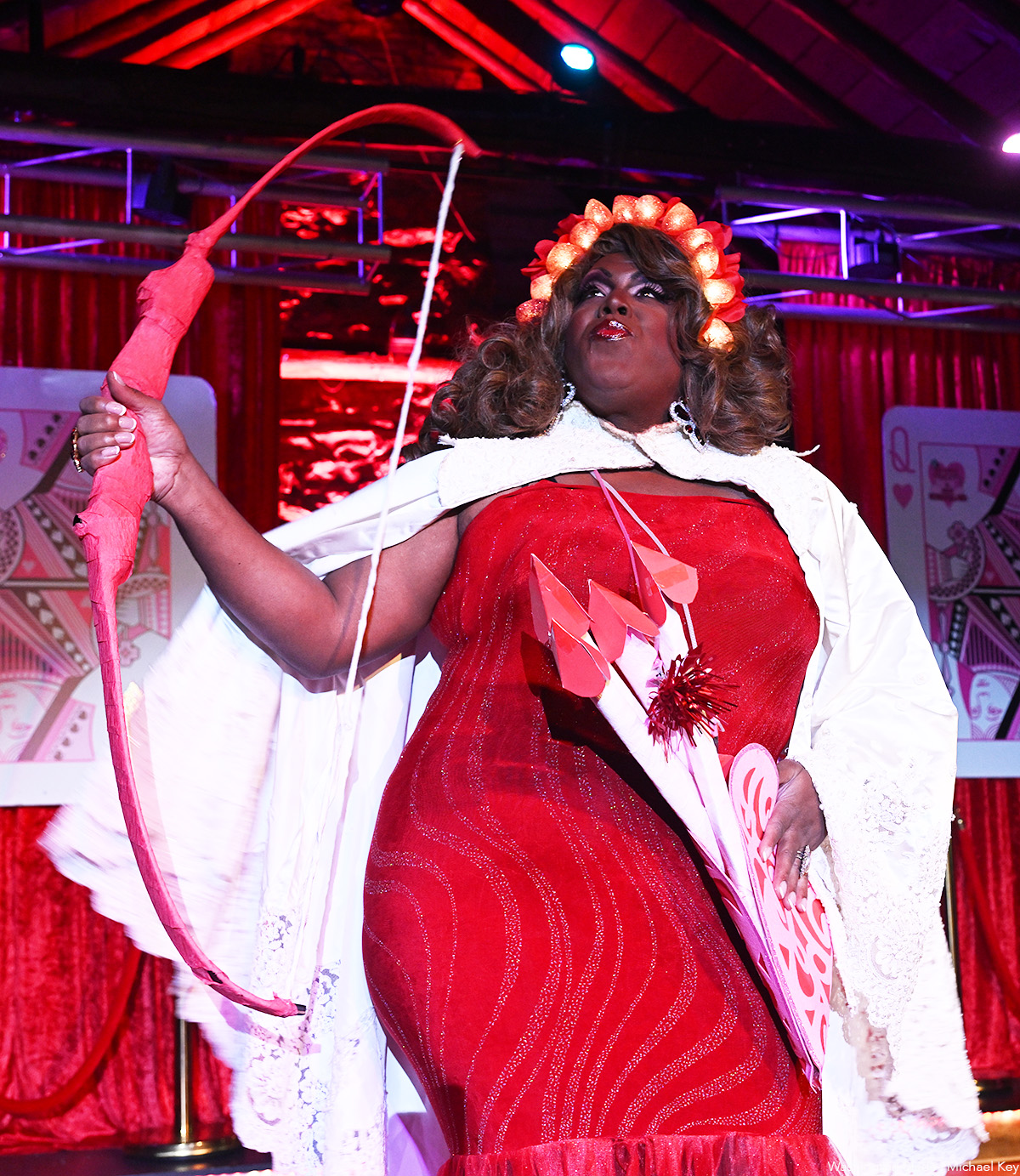
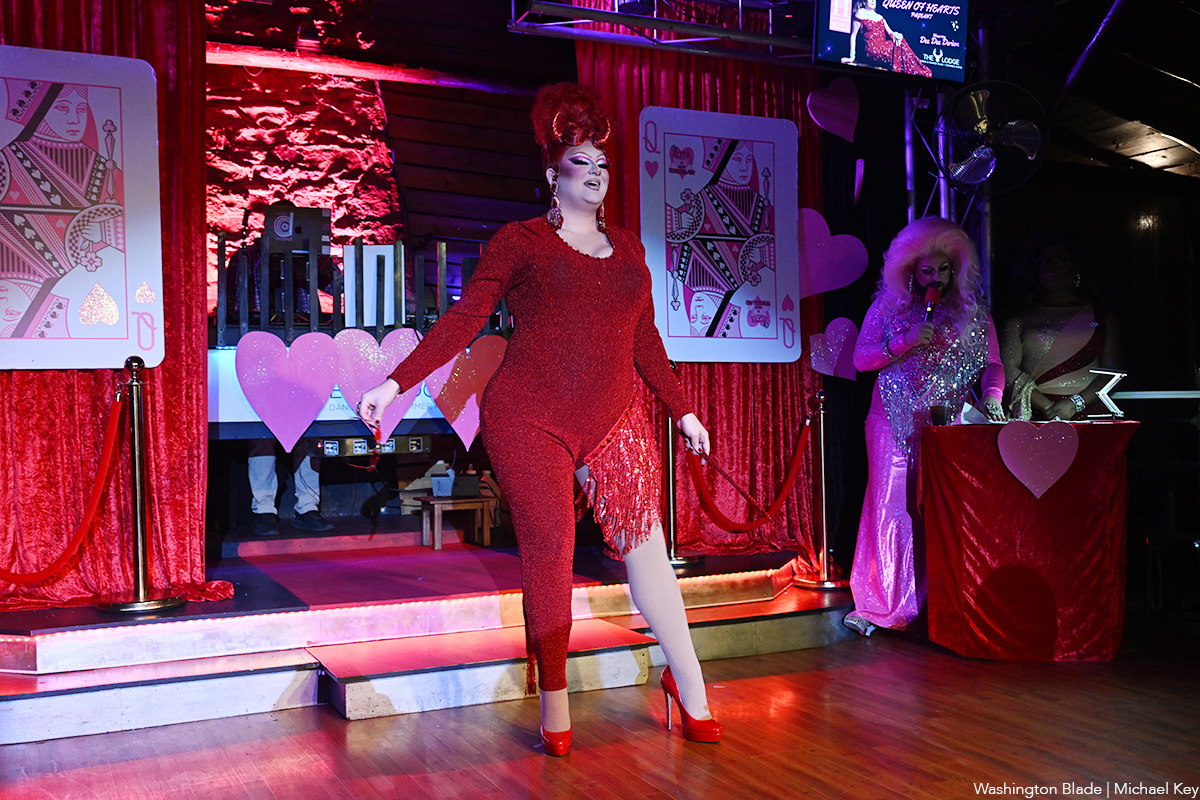
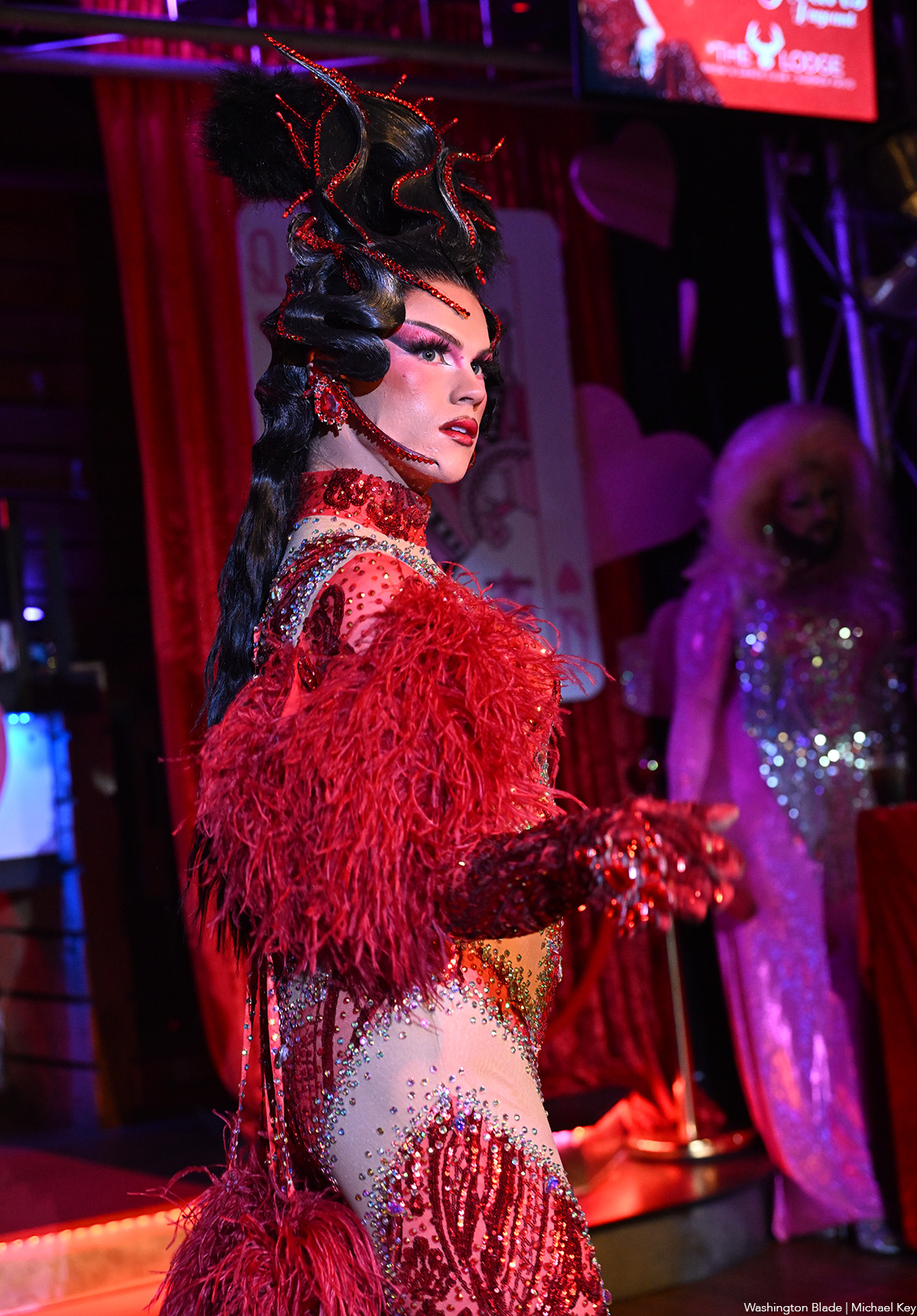
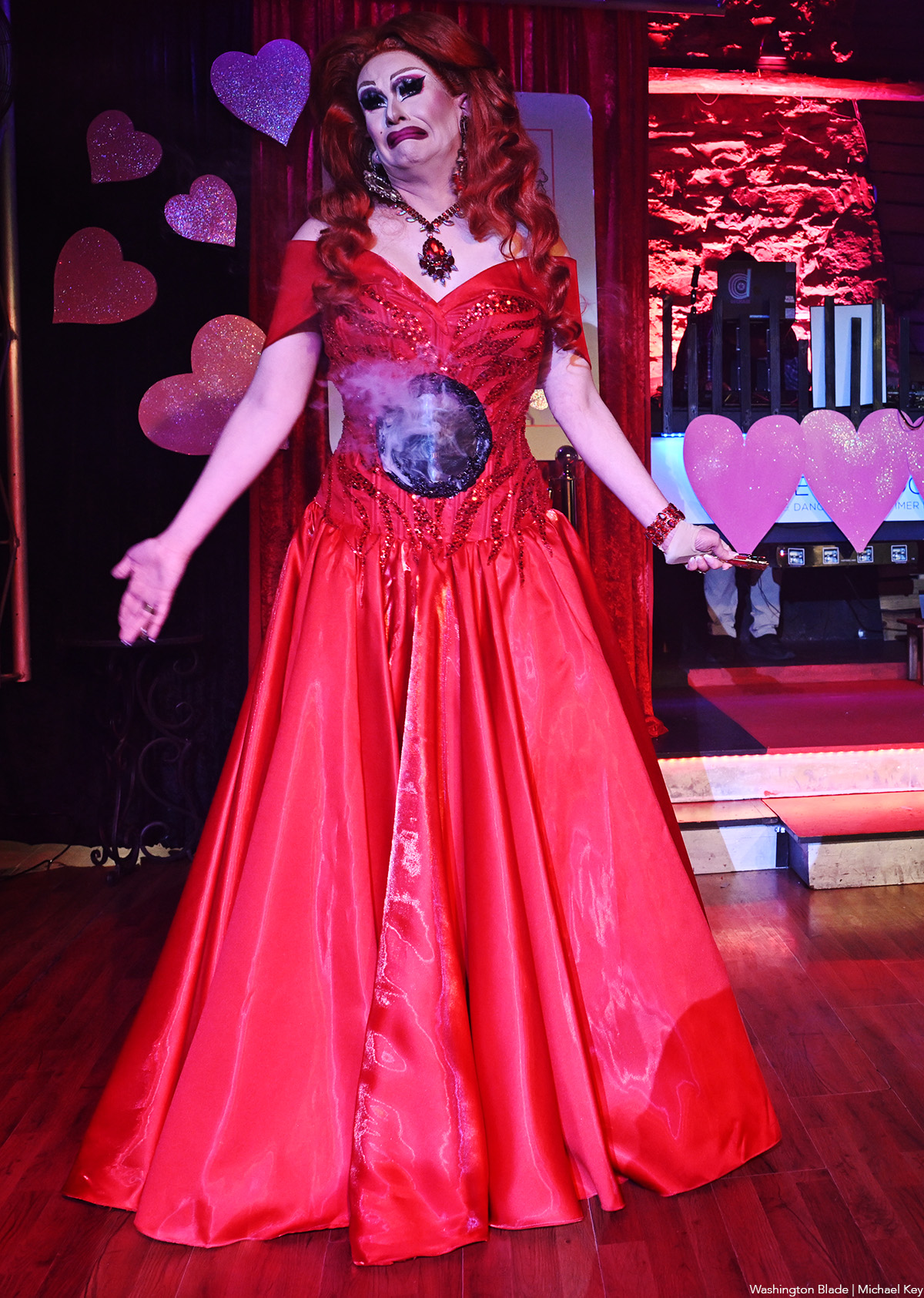
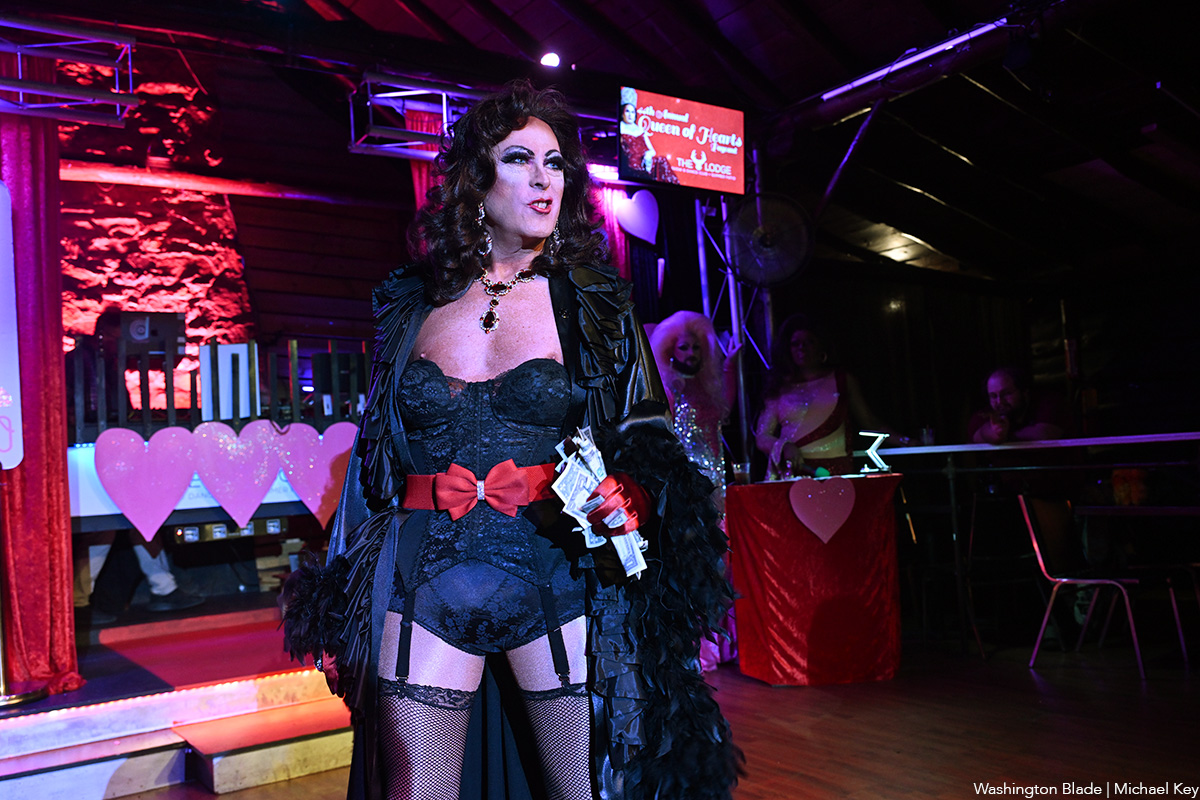
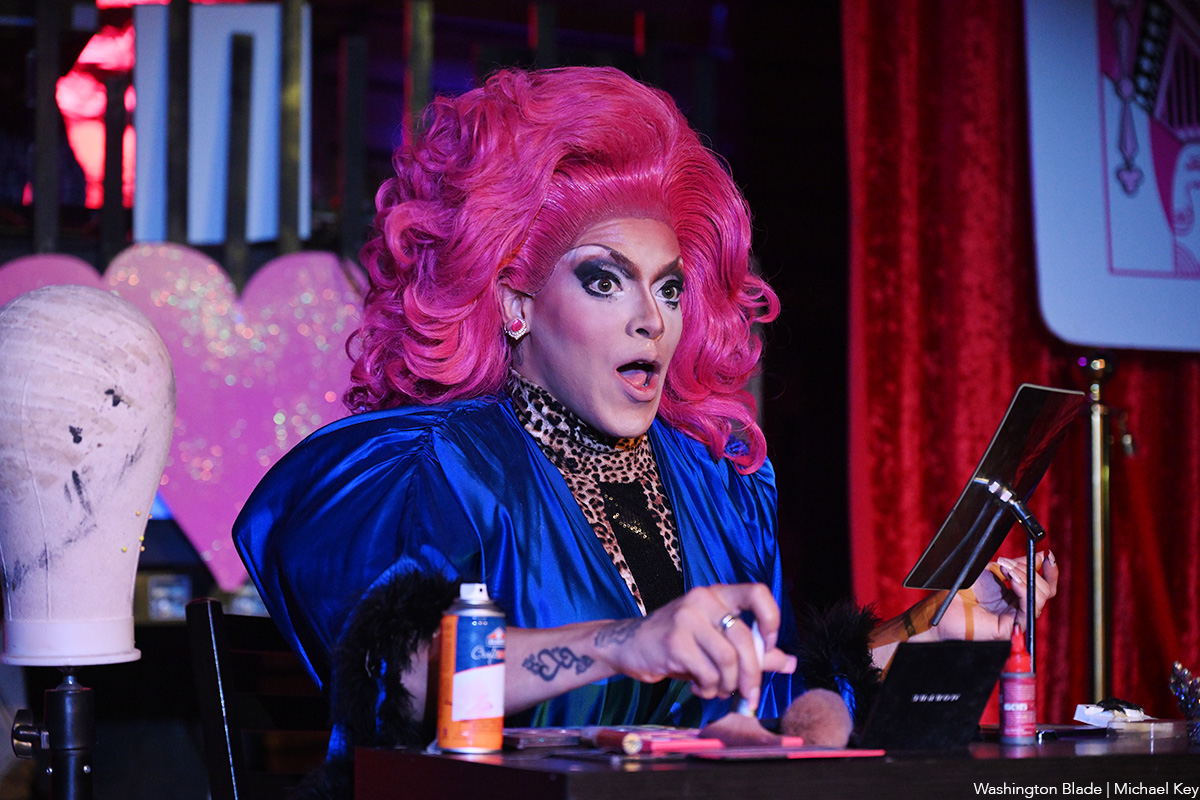
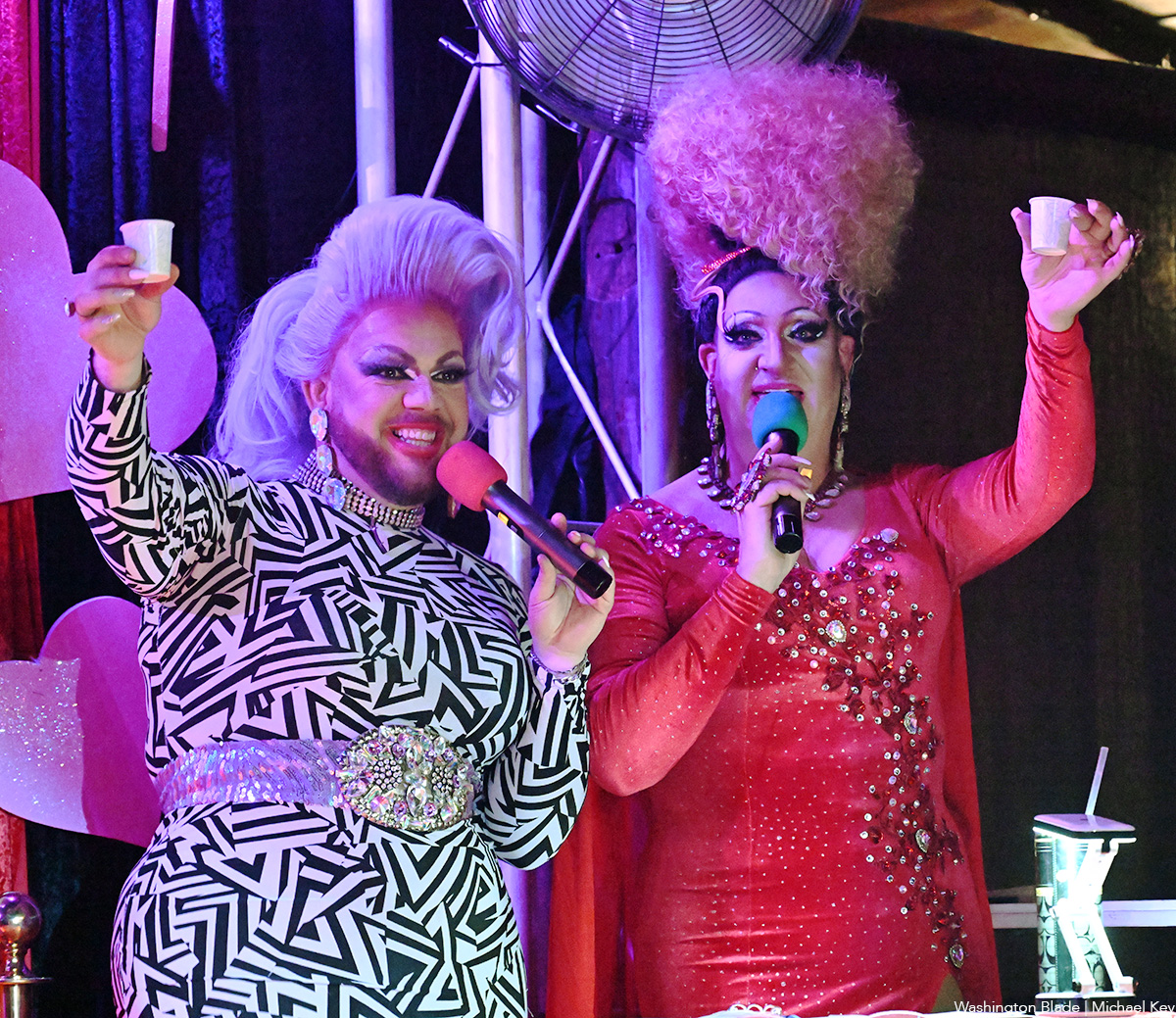
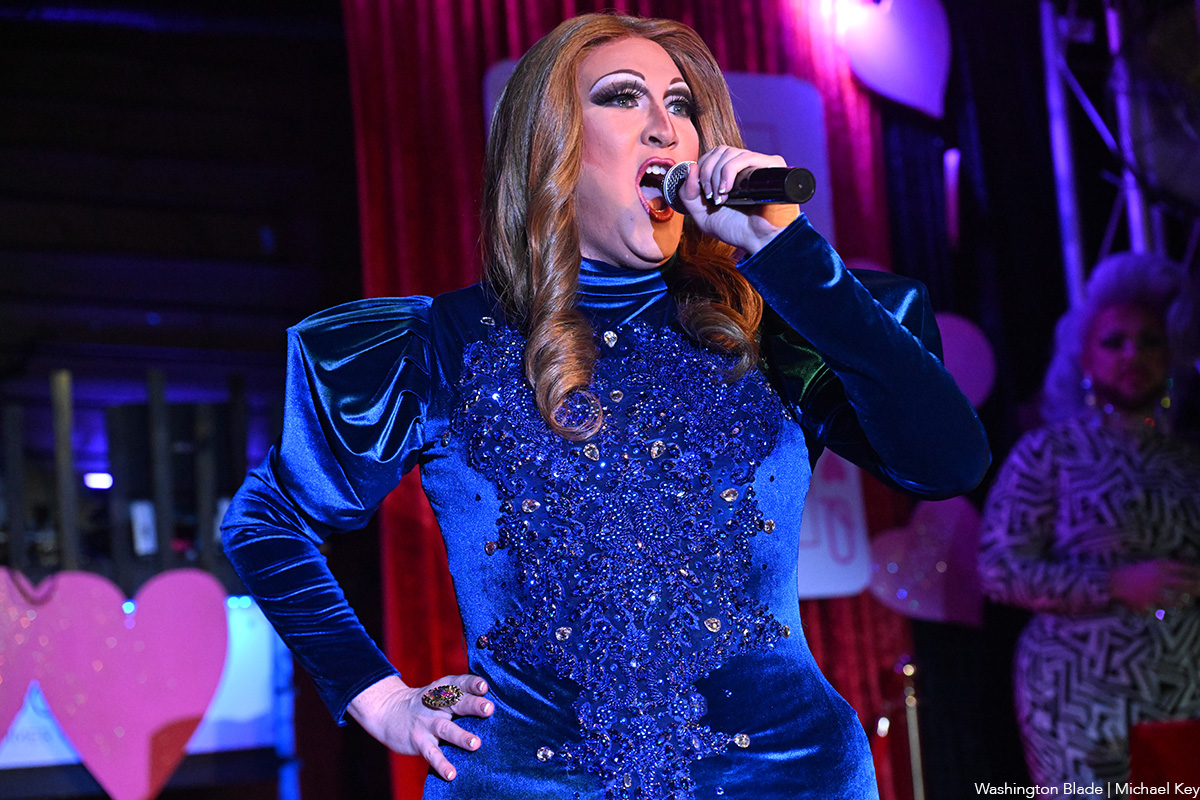
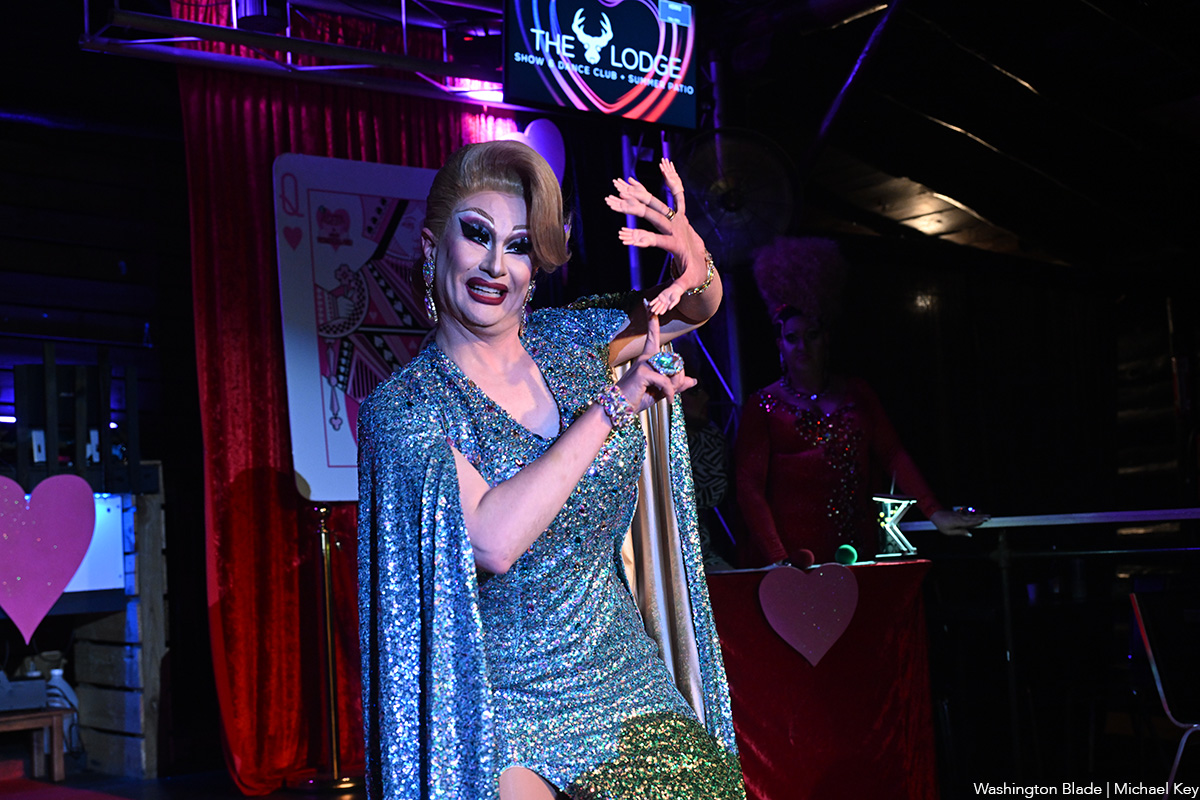
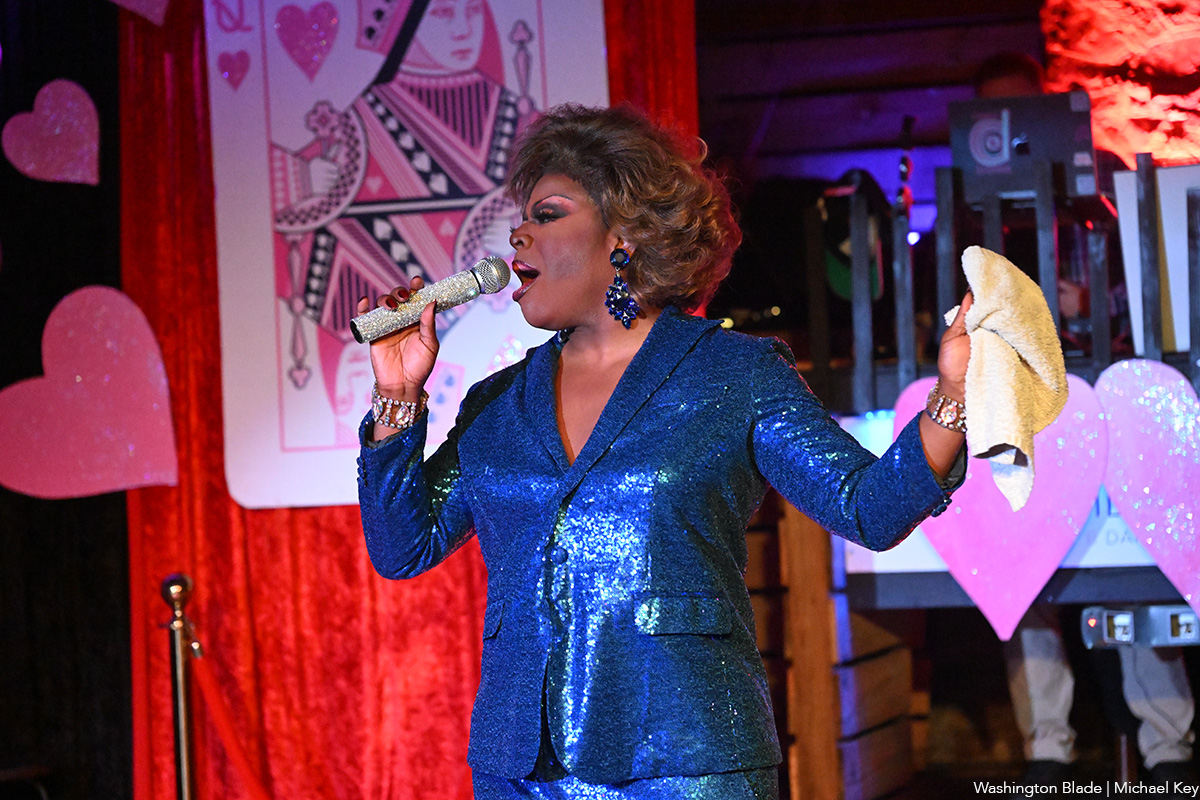
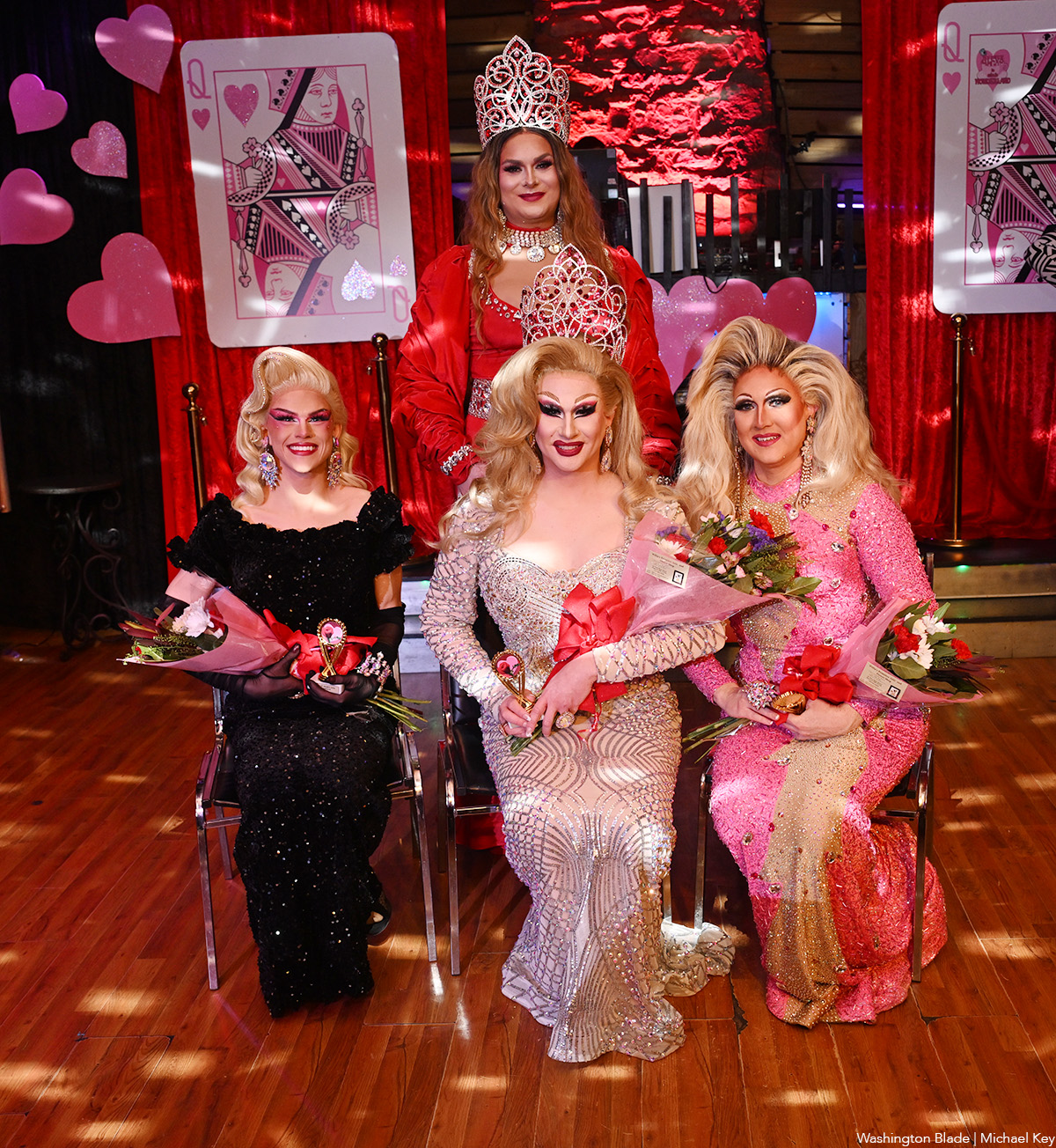
View on Threads
Books
New book profiles LGBTQ Ukrainians, documents war experiences
Tuesday marks four years since Russia attacked Ukraine

Journalist J. Lester Feder’s new book profiles LGBTQ Ukrainians and their experiences during Russia’s war against their country.
Feder for “The Queer Face of War: Portraits and Stories from Ukraine” interviewed and photographed LGBTQ Ukrainians in Kyiv, the country’s capital, and in other cities. They include Olena Hloba, the co-founder of Tergo, a support group for parents and friends of LGBTQ Ukrainians, who fled her home in the Kyiv suburb of Bucha shortly after Russia launched its war on Feb. 24, 2022.
Russian soldiers killed civilians as they withdrew from Bucha. Videos and photographs that emerged from the Kyiv suburb showed dead bodies with their hands tied behind their back and other signs of torture.

Olena Shevchenko, chair of Insight, a Ukrainian LGBTQ rights group, wrote the book’s forward.

The book also profiles Viktor Pylypenko, a gay man who the Ukrainian military assigned to the 72nd Mechanized Black Cossack Brigade after the war began. Feder writes Pylypenko’s unit “was deployed to some of the fiercest and most important battles of the war.”
“The brigade was pivotal to beating Russian forces back from Kyiv in their initial attempt to take the capital, helping them liberate territory near Kharkiv and defending the front lines in Donbas,” wrote Feder.
Pylypenko spent two years fighting “on Ukraine’s most dangerous battlefields, serving primarily as a medic.”
“At times he felt he was living in a horror movie, watching tank shells tear his fellow soldiers apart before his eyes,” wrote Feder. “He held many men as they took their final breaths. Of the roughly one hundred who entered the unit with him, only six remained when he was discharged in 2024. He didn’t leave by choice: he went home to take care of his father, who had suffered a stroke.”
Feder notes one of Pylypenko’s former commanders attacked him online when he came out. Pylypenko said another commander defended him.
Feder also profiled Diana and Oleksii Polukhin, two residents of Kherson, a port city in southern Ukraine that is near the mouth of the Dnieper River.
Ukrainian forces regained control of Kherson in November 2022, nine months after Russia occupied it.
Diana, a cigarette vender, and Polukhin told Feder that Russian forces demanded they disclose the names of other LGBTQ Ukrainians in Kherson. Russian forces also tortured Diana and Polukhin while in their custody.
Polukhim is the first LGBTQ victim of Russian persecution to report their case to Ukrainian prosecutors.

Feder, who is of Ukrainian descent, first visited Ukraine in 2013 when he wrote for BuzzFeed.
He was Outright International’s Senior Fellow for Emergency Research from 2021-2023. Feder last traveled to Ukraine in December 2024.
Feder spoke about his book at Politics and Prose at the Wharf in Southwest D.C. on Feb. 6. The Washington Blade spoke with Feder on Feb. 20.
Feder told the Blade he began to work on the book when he was at Outright International and working with humanitarian groups on how to better serve LGBTQ Ukrainians. Feder said military service requirements, a lack of access to hormone therapy and documents that accurately reflect a person’s gender identity and LGBTQ-friendly shelters are among the myriad challenges that LGBTQ Ukrainians have faced since the war began.
“All of these were components of a queer experience of war that was not well documented, and we had never seen in one place, especially with photos,” he told the Blade. “I felt really called to do that, not only because of what was happening in Ukraine, but also as a way to bring to the surface issues that we’d had seen in Iraq and Syria and Afghanistan.”

Feder also spoke with the Blade about the war’s geopolitical implications.
Russian President Vladimir Putin in 2013 signed a law that bans the “promotion of homosexuality” to minors.
The 2014 Winter Olympics took place in Sochi, a Russian resort city on the Black Sea. Russia annexed Crimea from Ukraine a few weeks after the games ended.
Russia’s anti-LGBTQ crackdown has continued over the last decade.
The Russian Supreme Court in 2023 ruled the “international LGBT movement” is an extremist organization and banned it. The Russian Justice Ministry last month designated ILGA World, a global LGBTQ and intersex rights group, as an “undesirable” organization.
Ukraine, meanwhile, has sought to align itself with Europe.
Ukrainian President Volodymyr Zelenskyy after a 2021 meeting with then-President Joe Biden at the White House said his country would continue to fight discrimination based on sexual orientation and gender identity. (Zelenskyy’s relationship with the U.S. has grown more tense since the Trump-Vance administration took office.) Zelenskyy in 2022 publicly backed civil partnerships for same-sex couples.
Then-Ukrainian Ambassador to the U.S. Oksana Markarova in 2023 applauded Kyiv Pride and other LGBTQ and intersex rights groups in her country when she spoke at a photo exhibit at Ukraine House in D.C. that highlighted LGBTQ and intersex soldiers. Then-Kyiv Pride Executive Director Lenny Emson, who Feder profiles in his book, was among those who attended the event.
“Thank you for everything you do in Kyiv, and thank you for everything that you do in order to fight the discrimination that still is somewhere in Ukraine,” said Markarova. “Not everything is perfect yet, but you know, I think we are moving in the right direction. And we together will not only fight the external enemy, but also will see equality.”
Feder in response to the Blade’s question about why he decided to write his book said he “didn’t feel” the “significance of Russia’s war against Ukraine” for LGBTQ people around the world “was fully understood.”
“This was an opportunity to tell that big story,” he said.
“The crackdown on LGBT rights inside Russia was essentially a laboratory for a strategy of attacking democratic values by attacking queer rights and it was one as Ukraine was getting closet to Europe back in 2013, 2014,” he added. “It was a strategy they were using as part of their foreign policy, and it was one they were using not only in Ukraine over the past decade, but around the world.”
Feder said Republicans are using “that same strategy to attack queer people, to attack democracy itself.”
“I felt like it was important that Americans understand that history,” he said.

More than a dozen LGBTQ athletes won medals at the Milan Cortina Winter Olympics that ended on Sunday.
Cayla Barnes, Hilary Knight, and Alex Carpenter are LGBTQ members of the U.S. women’s hockey team that won a gold medal after they defeated Canada in overtime. Knight the day before the Feb. 19 match proposed to her girlfriend, Brittany Bowe, an Olympic speed skater.
French ice dancer Guillaume Cizeron, who is gay, and his partner Laurence Fournier Beaudry won gold. American alpine skier Breezy Johnson, who is bisexual, won gold in the women’s downhill. Amber Glenn, who identifies as bisexual and pansexual, was part of the American figure skating team that won gold in the team event.
Swiss freestyle skier Mathilde Gremaud, who is in a relationship with Vali Höll, an Austrian mountain biker, won gold in women’s freeski slopestyle.
Bruce Mouat, who is the captain of the British curling team that won a silver medal, is gay. Six members of the Canadian women’s hockey team — Emily Clark, Erin Ambrose, Emerance Maschmeyer, Brianne Jenner, Laura Stacey, and Marie-Philip Poulin — that won silver are LGBTQ.
Swedish freestyle skier Sandra Naeslund, who is a lesbian, won a bronze medal in ski cross.
Belgian speed skater Tineke den Dulk, who is bisexual, was part of her country’s mixed 2000-meter relay that won bronze. Canadian ice dancer Paul Poirier, who is gay, and his partner, Piper Gilles, won bronze.
Laura Zimmermann, who is queer, is a member of the Swiss women’s hockey team that won bronze when they defeated Sweden.
Outsports.com notes all of the LGBTQ Olympians who competed at the games and who medaled.

